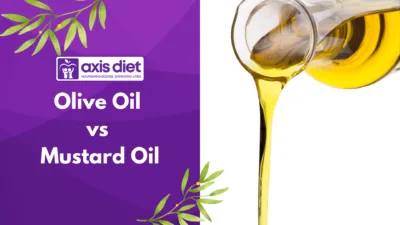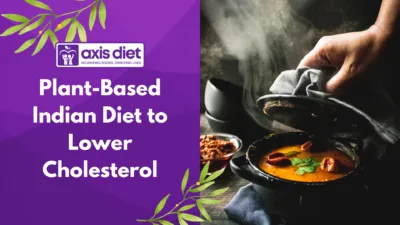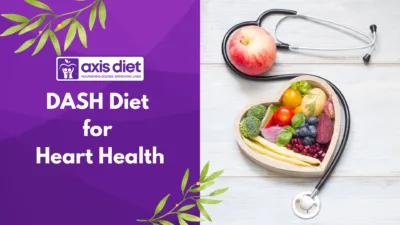Adopting a heart-healthy Indian diet plan is accessible even for busy individuals. This approach emphasizes fruits, vegetables, whole grains, and lean proteins, offering delicious meals that promote well-being. With a plethora of flavorful options, this guide provides practical recipes and tips for preparing wholesome Indian meals that fit into tight schedules.
What we’ll learn,
Understanding Heart Health and Nutrition
Heart health is significantly influenced by nutrition. A well-balanced diet can help maintain cardiovascular wellness, reduce the risk of heart diseases, and promote overall health. Key nutrients play a crucial role in heart health. Understanding these nutrients and how to incorporate them into daily meals can lead to a healthier lifestyle.
Fiber is vital for heart health as it helps lower cholesterol levels and regulates blood sugar. Whole grains like oats, brown rice, and quinoa are excellent choices. Incorporating legumes such as lentils, chickpeas, and beans not only adds fiber but also provides plant-based protein. Aiming for at least 25 grams of fiber daily can be easily achieved with various Indian meals. For instance, enjoy lentil soups or serve whole grain roti with vegetable curries.
Another essential nutrient is omega-3 fatty acids, known for their anti-inflammatory benefits. These healthy fats are present in flaxseeds, chia seeds, and walnuts. Adding a tablespoon of ground flaxseeds to smoothies or oatmeal can boost heart health. Additionally, incorporating fish, particularly fatty fish like salmon, in a balanced diet can provide omega-3s.
Antioxidants are crucial for reducing oxidative stress and inflammation, which are linked to heart disease. Fruits and vegetables are rich sources of antioxidants. Incorporating a variety of colorful options such as berries, tomatoes, and leafy greens is beneficial. A simple mixed salad with spinach, tomatoes, and pomegranates can be an excellent addition to meals. The incorporation of a variety of spices and herbs can enhance the flavor and increase antioxidant intake.
Potassium is another important nutrient for heart health, as it helps manage blood pressure. Foods rich in potassium include bananas, sweet potatoes, and spinach. A wholesome meal could include baked sweet potatoes with a side of sautéed spinach to reap the potassium benefits.
In addition to these nutrients, monounsaturated fats from sources like nuts, seeds, and avocados support heart health by improving cholesterol levels. Snacking on a handful of nuts or adding avocado to salads can enhance daily intake of these healthy fats.
Even simple lifestyle changes, like cooking dishes with olive oil instead of ghee or butter, can have a positive impact on heart health. Adopting these dietary components into a heart-healthy Indian diet involves creating meals rich in whole grains, legumes, fruits, and vegetables. You can explore ways to lower cholesterol through mindful meal preparation by visiting this resource.
Through engaging in conscious eating and incorporating these heart-healthy nutrient sources, it is entirely possible to lead a life that supports heart health while enjoying Indian cuisine.
Essentials of a Heart-Healthy Indian Diet
A heart-healthy Indian diet is built on a foundation of wholesome foods that nourish both body and heart. The core components include whole grains, legumes, fruits, and vegetables. Each of these food groups plays a vital role in promoting cardiovascular wellness.
Whole grains such as brown rice, oats, and whole wheat chapati are rich in fiber. Fiber helps lower cholesterol levels while maintaining healthy blood pressure. These grains provide a steady source of energy, making them ideal for busy lifestyles.
Legumes, including lentils, chickpeas, and beans, are excellent sources of protein and fiber. They are low in saturated fat and contribute to heart health by improving cholesterol profiles. Incorporating legumes into meals can help keep one feeling full longer, reducing the need for unhealthy snacking.
Fruits and vegetables are essential for a heart-healthy diet. They are packed with antioxidants, vitamins, and minerals that fight inflammation and oxidative stress. Colorful fruits like berries, oranges, and pomegranates, along with green leafy vegetables, should be part of daily meals. Aim to fill half your plate with these nutrient-dense options.
The role of spices and herbs cannot be overstated. Many spices have properties that promote heart health. For instance, turmeric, containing curcumin, is known for its anti-inflammatory effects. Ginger supports circulation and may help lower blood pressure. Other beneficial spices include cinnamon, known for reducing bad cholesterol and cardamom, which may have a positive impact on blood pressure levels.
Incorporating herbs like cilantro and basil not only enhances flavor but also adds nutrients. These herbs can support cardiovascular wellness, offering compounds that may help lower blood pressure and improve overall heart health.
Finding the right balance of these components can lead to satisfying meals. Combine whole grains with legumes for protein-rich dishes. Add a variety of fruits and vegetables to salads and stir-fries. Enhance the flavor with spices and herbs to create heart-healthy meals that excite the palate.
For more insights on how specific ingredients contribute to heart health, consider exploring the role of spices in your diet.
Simple Breakfast Options
Breakfast often sets the tone for the day. A heart-healthy Indian breakfast can be quick, delicious, and nutritious. Here are two simple recipes that cater to these needs: Oats Upma and Vegetable Poha.
Oats Upma
- Preparation Time: 15 minutes
- Ingredients: 1 cup rolled oats, 1/2 cup mixed vegetables (like carrots, peas, and beans), 1 teaspoon mustard seeds, 1 teaspoon urad dal, 2 green chilies (chopped), 1 tablespoon ginger (grated), 1 tablespoon oil, salt to taste, and coriander leaves for garnish.
Steps:
- Dry roast oats in a pan until light brown. Set aside.
- In the same pan, heat oil and add mustard seeds. Wait for them to splutter.
- Add urad dal and sauté until golden brown.
- Incorporate green chilies and ginger, stirring for a minute.
- Add mixed vegetables and cook until tender.
- Mix in the roasted oats and salt. Stir well and cook for another 2-3 minutes.
- Garnish with coriander leaves before serving.
Health Benefits: Oats are rich in soluble fiber, which can help lower cholesterol levels. The added vegetables contribute a variety of vitamins and minerals, making this dish a balanced meal to kick-start your day.
Vegetable Poha
- Preparation Time: 10 minutes
- Ingredients: 1 cup flattened rice (poha), 1/2 cup mixed vegetables (like peas, carrots, and potatoes), 1 teaspoon mustard seeds, 1 teaspoon turmeric, 2 green chilies (chopped), 1 tablespoon oil, salt to taste, and lemon juice for garnishing.
Steps:
- Rinse poha under water until softened. Drain and set aside.
- Heat oil in a pan, add mustard seeds, and allow them to pop.
- Add green chilies and turmeric, sautéing for a minute.
- Mix in vegetables and cook until tender.
- Add softened poha and salt, stirring until well combined.
- Finish with a squeeze of lemon juice before serving.
Health Benefits: Poha is low in calories and easy to digest. It’s also high in iron and helps stabilize blood sugar levels. The vegetables boost dietary fiber and essential nutrients, promoting heart health.
Both dishes can be prepared quickly and provide essential nutrients to start your day energetically. Incorporating these meals into your morning routine supports a heart-healthy diet, rich in whole grains and vegetables.Explore more benefits of oats and enhance your breakfast experience.
Quick Lunch Solutions
Lunch is often a challenging meal for those with busy schedules. However, preparing balanced lunch recipes can be simple and quick without compromising on heart health. Here, we present a couple of delicious meal ideas that are easy to prepare, nutritious, and packed with heart-healthy ingredients.
Quinoa Salad
One option is a quinoa salad. Quinoa is a gluten-free grain that is high in protein and contains all nine essential amino acids. It is also rich in fiber, which helps lower cholesterol levels. To prepare a quinoa salad:
- Cook 1 cup of quinoa according to package instructions.
- Once cooked, let it cool and mix it with diced cucumbers, bell peppers, cherry tomatoes, and red onions.
- Add some chopped fresh herbs like parsley or cilantro for flavor.
- Dress with lemon juice, olive oil, salt, and pepper.
This salad is not only refreshing but also provides antioxidants from the vegetables. It can be made ahead of time and stored in the refrigerator, making it ideal for busy individuals. The healthy fats from olive oil and the fiber from the vegetables work together to support heart health.
Mixed Vegetable Curry
Another fantastic lunch option is a mixed vegetable curry. This dish is colorful and can incorporate various seasonal vegetables, making it versatile and packed with nutrients. To make a simple mixed vegetable curry:
- Heat a tablespoon of cooking oil in a pan and add cumin seeds.
- Once they splutter, add chopped onions, and sauté until golden.
- Add garlic, ginger, chopped tomatoes, and the vegetables of your choice, such as carrots, beans, and peas.
- Season with turmeric, coriander powder, cumin powder, and salt.
- Add some water and let it simmer until the vegetables are tender.
- Finish with a handful of spinach or methi leaves for added nutrition.
The use of a variety of vegetables ensures you get a plethora of vitamins and minerals. This dish pairs well with a small serving of brown rice or whole wheat roti, which is essential for a heart-healthy diet.
Both these lunch options are designed to fuel your day while supporting your heart health. By incorporating grains, fruits, and vegetables, you are not only enjoying delightful meals but also promoting wellness. For additional tips on heart-healthy ingredients, refer to cholesterol-lowering Indian foods to enhance your meal planning.
Heart-Healthy Afternoon Snacks
Heart-healthy afternoon snacks play a crucial role in maintaining energy levels and providing essential nutrients throughout the day. Simple yet flavorful alternatives can satisfy cravings without compromising heart health. Here are some quick and healthy snack ideas to incorporate into busy afternoons.
Roasted Chickpeas
These crunchy delights are not only tasty but also packed with protein and fiber. To prepare, rinse a can of chickpeas and pat them dry. Preheat your oven to 425°F (220°C). Spread the chickpeas on a baking sheet, drizzle with a little olive oil, and season with your choice of spices, such as cumin, paprika, or salt. Roast for about 20-30 minutes, shaking the pan halfway through to ensure even cooking. Enjoy them warm or store them for a nutritious snack later.
Fruit Chaat
This refreshing fruit salad is full of vitamins, minerals, and antioxidants. Choose a mix of seasonal fruits like apples, bananas, guavas, and oranges. Chop them into bite-sized pieces and mix in a bowl. For an extra zing, add a sprinkle of chaat masala, a dash of lemon juice, and some honey if desired. This colorful snack is not just delicious; it’s also rich in fiber and low in calories, making it perfect for heart health.
Vegetable Sticks with Hummus
Slicing vegetables like carrots, cucumbers, and bell peppers is a quick way to boost your snack game. Pair them with hummus for a dip rich in protein and healthy fats. Simply blend cooked chickpeas, tahini, olive oil, lemon juice, garlic, and salt for a quick homemade hummus. Keep it in the refrigerator for a refreshing snack after a busy morning.
Sprouted Moong Salad
Sprouts are a nutrient powerhouse. Soak moong beans overnight and let them sprout. Mix the sprouts with chopped tomatoes, onions, coriander leaves, and a squeeze of lime. Season with salt and pepper for a tasty snack full of vitamins, protein, and fiber.
Nuts and Seeds Mix
A handful of unsalted nuts and seeds can provide a great energy boost. Combine almonds, walnuts, and pumpkin seeds in a small container. Nuts have heart-healthy fats, while seeds offer added fiber. This crunchy snack can keep you full and satisfied until dinner.
These snacks not only keep cravings at bay but also nourish your body with essential nutrients. By adding these heart-healthy options to your afternoon routine, you create a balanced diet that supports overall health. For more ideas on maintaining a heart-healthy diet, visit cholesterol-lowering Indian foods.
Effortless Dinner Dishes
For those seeking effortless dinner dishes that support heart health, Indian cuisine offers a variety of options. These meals are not only quick to prepare but also rich in nutrients. A perfect combination of proteins, healthy fats, and spices can dramatically benefit cardiovascular health. Here are some simple yet tasty dinner recipes to consider.
Grilled Fish with Spices
Fish, especially varieties rich in omega-3 fatty acids, is excellent for heart health. Start with your choice of fish, such as salmon or mackerel. Marinate it with a mix of turmeric, chili powder, and lemon juice. These spices not only enhance flavor but also add anti-inflammatory properties. Grill the fish for about 10-15 minutes until cooked through. Serve with a side of steamed vegetables or a fresh salad. This dish is not only light but also helps in lowering bad cholesterol.
Lentil Soup
Lentils are a great source of protein and fiber, which can aid in regulating blood pressure. Rinse a cup of lentils and boil them with water until tender. Sauté onions, garlic, and ginger in a pan. Add diced tomatoes, cumin, and coriander powder for flavor. Combine the sautéed mixture with the boiled lentils, and simmer for an additional 10 minutes. This soup is nourishing and satisfies hunger without causing a spike in blood sugar levels.
Chickpea Salad
Chickpeas add protein, fiber, and essential minerals. Soak a cup of chickpeas overnight, then cook them until tender. In a bowl, mix cooked chickpeas with diced cucumbers, tomatoes, and bell peppers. Dress with olive oil, lemon juice, and herbs. This salad is refreshing and can be served as a main dish or a side. The high fiber content helps in maintaining a healthy weight and lowers cholesterol levels.
Each of these recipes incorporates ingredients known to support heart health. The key is to use fresh, whole ingredients and limit processed additions. Remember that balance and moderation are essential. Preparing these meals not only serves the heart but also fits seamlessly within a busy lifestyle. Embracing these dishes can lead to a sustainable, heart-healthy Indian diet. For more insights on heart-healthy meals, check out cholesterol-lowering Indian foods.
Seeking Professional Guidance
Maintaining a heart-healthy diet is pivotal for everyone, especially when managing a busy lifestyle. It is essential to recognize that what works for one individual may not suit another. Personal factors such as age, weight, activity level, and medical history play a vital role in shaping dietary needs. For this reason, consulting with a qualified nutritionist or dietitian is highly recommended. They can assist in creating a tailored meal plan that accommodates your specific requirements while promoting heart health.
A professional can provide insights that are often overlooked. They can help you understand the nuances of nutritional balance, macronutrients, and portion control. Tailoring your diet based on these factors creates a more effective approach to maintaining heart health. A one-size-fits-all diet rarely yields favorable results, as individual needs vary significantly. For example, some may require a diet higher in omega-3 fatty acids, while others might benefit from increased fiber intake.
Moreover, professionals stay updated on the latest research and trends in nutrition. They can implement strategies that align with the latest evidence-based practices. This knowledge includes understanding the benefits of wholesome ingredients prevalent in Indian cuisine. Foods like lentils, whole grains, and fresh vegetables can significantly contribute to heart health. However, the key is knowing how to incorporate these effectively into your daily menus.
Another aspect of seeking professional guidance is addressing emotional or psychological barriers to healthy eating. A dietitian can provide not only meal plans but also support and accountability. This personalized approach fosters sustainable dietary changes, which ultimately lead to better health outcomes.
For those keen on integrating healthy Indian meals into their lives, a dietitian can help suggest viable recipes and cooking methods tailored to your tastes and preferences. Whether you are drawn to flavorful curries or light salads, their expertise can guide you through making heart-healthy choices that do not feel restrictive.
Take the first step towards better eating habits today. Reach out to a professional who can guide you in customizing a heart-healthy diet plan uniquely suited to you. For more information on heart health and nutrition, visit this resource.
Final words
Embracing a heart-healthy Indian diet can greatly improve your overall well-being without compromising busy schedules. By incorporating simple yet nutritious meals, you’ll enhance your health while enjoying delightful flavors. Start implementing these recipes today for a balanced lifestyle, and remember to seek personalized guidance for optimal results.
The content provided in this blog post is intended for general knowledge and informational purposes only. It should not be considered a substitute for professional medical advice, diagnosis, or treatment. For personalized health recommendations tailored to your individual needs, we highly encourage you to connect with our certified clinical dietitians. Visit us at Axis Diet Consulting to schedule a consultation and take the first step toward your health journey!






[…] more insights into heart-healthy meals, consider exploring this article which provides additional recipes and tips. Committing to a plant-based diet can significantly […]